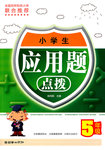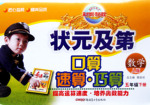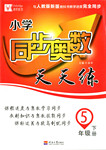
【题目】完型填空。
Sam is my new classmate. He is American boy. He is from New York. He is thirteen.
Sam often gets up at about 6: 30 on . And he often has a cup of tea, an egg and some bread for his . Then he goes to school at 7: 30 am and gets there 8: 00 am. They have four classes in the morning and two in the . At 3: 50 pm they play games. He studies hard and studies well. He likes English and is at it. He teaches us and we teach him Chinese. He can speak a little Chinese now, but not . Mike is his good friend. They go home together(一起). He does homework at home, but sometimes at school. He likes TV very much. But he can only watch it on Saturday and Sunday. He often goes to bed at about nine.
【1】 A. a B. an C. the D./
【2】 A. Sundays B. Saturdays C. weekends D. weekdays
【3】A. breakfast B. lunch C. supper D. dinner
【4】A. with B. for C. before D. after
【5】A. morning B. afternoon C. evening D. night
【6】A. good B. well C. bad D. badly
【7】A. English B. Chinese C. China D. France
【8】 A. many B. much C. some D. any
【9】 A. he B. him C. he’s D. his
【10】 A. seeing B. looking C. watching D.reading
【答案】
【小题1】 B
【小题2】 D
【小题3】 A
【小题4】 C
【小题5】 B
【小题6】 A
【小题7】 A
【小题8】 B
【小题9】 D
【小题10】C
【解析】
试题分析:本文叙述了Sam来自美国的纽约,在上学日他每天7: 30上学,上午有4节课,下午有两节课,他喜欢英语并且经常帮助同学学英语,他非常爱看电视。
【小题1】考查冠词及语境的理解。句意:他是一个美国人。因为空格前是以元音音素开头的单词,所以应该冠词an,故选B。
【小题2】考查名词及语境的理解。 A. Sundays周日; B. Saturdays周六; C. weekends周末; D. weekdays工作日。句意:Sam经常在上学日6:30起床。根据Then he goes to school at 7: 30 am可知,这里指上学的时间。故选D。
【小题3】考查名词及语境的理解。A. breakfast早饭; B. lunch午饭; C. supper晚饭; D. dinner正餐。句意:早饭他经常喝一杯茶、吃一个鸡蛋、吃一些面包。根据Then he goes to school at 7: 30 am可知,这里指早饭。故选A。
【小题4】考查介词及语境的理解。A. with和; B. for为了; C. before在……之前; D. after在……之后。句意:他7点半去上学,在8点之前达到学校。根据They have four classes in the morning可知,要在上课之前达到学校。故选C。
【小题5】考查名词及语境的理解。A. morning早晨; B. afternoon下午; C. evening晚上; D. night晚上。句意:他们早晨上四节课,下午上两节课。根据They have four classes in the morning可知,下面要提到的是下午的课,故选B。
【小题6】考查形容词及语境的理解。A. good好的; B. well好的,副词; C. bad坏的; D. badly坏的。句意:他喜欢英语并且喜欢英语。短语be good at sth擅长某事。故选A。
【小题7】考查名词及语境的理解。A. English 英语; B. Chinese汉语; C. China中国; D. France汉语。句意:他教我们英语我们教他汉语。根据He likes English可知,他教的是英语。故选A。
【小题8】考查代词及语境的理解。 A. many许多; B. much多,代替不可数名词; C. some一些;D. any一些。句意:他现在能够讲一点汉语,但是不多。这里指语言,是不可数名词。故选B。
【小题9】考查代词及语境的理解。 A. he他;主格; B. him他,宾格; C. he’s他是; D. his他的。句意:他在家做作业。短语do one’s homework做作业。故选D。
【小题10】考查动词及语境的理解。 A. seeing看见; B. looking 看; C. watching观看; D.reading读书。句意:他非常喜欢看电视。短语watch TV看电视。故选C。


 应用题点拨系列答案
应用题点拨系列答案 状元及第系列答案
状元及第系列答案 同步奥数系列答案
同步奥数系列答案科目:初中英语 来源: 题型:
【题目】单词拼写(共5小题;每小题1分,满分5分)
根据首字母及汉语提示,完成下列单词的拼写,使句意明确,语言通顺。
【1】All thep (学生) in that primary school like sports.
【2】Neil Armstrong was the first man tol (着陆) on the moon.
【3】My uncle oftenf (修理) his bike when it doesn’t work.
【4】Walk along this street and turn left at the thirdb (街区).
【5】It is onlyf (公平的) that both sides should be heard.
查看答案和解析>>
科目:初中英语 来源: 题型:
【题目】My family lives very happily on a farm near a small town. My father always learns some information about weather through the TV, the Internet and newspapers.
One evening, he asked us to meet at the table after dinner. "I have some bad news," he said. "The weather reports on the television warned(警告)that we would face a typhoon tomorrow."
At 6.30 a.m. the next day, the winds started and the rain was falling heavily. There were new warnings that the sea level could go up as much as 5 meters.
The winds were terribly strong and tree branches were flying everywhere. Trees were falling down and the rain kept coming down.
Just after 10:30, the wind stopped suddenly-it was strangely calm and the sun was shining. Then the winds came howling(咆哮)again, but this time more rain fell. There were more flying things and the storm came in. Everything within 1 km of the coast was flooded-there was fish in the streets. Now the winds were dying down, but the rain was still falling.
After another two hours, the wind came to a stop at last. My home was in a mess and my mum burnt her arm when the hot water from the stove hit her skin. We were all frightened, but we were all safe, including the cat.
【1】The father knew that there was going to be a typhoon from______.
A. the Internet
B. the newspapers
C. his friends
D. the TV
【2】What were the new warnings?
A. The sea level could go up as much as 5 meters.
B. Trees were falling down.
C. The winds came howling again.
D. There were more flying things.
【3】How long did the typhoon last?
A. About two hours.
B. About four hours.
C. About six hours.
D. About eight hours.
【4】What did not happen when the typhoon came?
A. There was flood.
B. The snowstorm came in.
C. The winds were terribly strong.
D. The rain kept coming down.
查看答案和解析>>
科目:初中英语 来源: 题型:
【题目】Dinner customs (习惯) are different around the world. If you are a guest in Ghana( 加纳), this information will help you a lot.
In Ghana, dinner is usually from four in the afternoon to six in the evening. But there are no strict rules (规则) about time. Whenever a guest arrives, a family offers food. When you go to a home, the person who receives guests takes you to the living room first. At this time everyone welcomes you. Then you go to the dinning room. There you wash your hands in a bowl of water. All the food is on the table.
In Ghana you usually eat with your fingers. You eat from the same dish as everyone else. But you eat from one side of the dish only. It is not polite to get food from the other side of the dish. After dinner, you wash your hands again in a bowl of water.
Most meals in Ghana have a dish called fufu. People in Ghana make fufu from the powder(粉末) of some plants. Sometimes they cut the fufu with a saw(锯子) because it is very hard. You must chew(咀嚼) fufu well, or you may get sick. You eat fufu with the fingers of your right hand only.
【1】From the passage we know that in Ghana ______________.
A. the rules for dinner time are not strict
B. dinner is always at six in the evening
C. a family offers food only at four in the afternoon
D. people usually invite their guests to dinner late in the evening
【2】If you are a dinner guest in Ghana, the host (主人) always takes you to ________.
A. the dining room first B. the living room first
C. the kitchen first D. the garden first
【3】People in Ghana usually eat ________.
A. from one side of a dish to the other
B. from the other side of the dish
C. with their fingers
D. with their spoons
【4】In fact, most dishes in Ghana ________.
A. are cooked with the powder of some plants
B. have fufu in them
C. are too hard to eat
D. are not very hard
【5】When you eat fufu, you’d better _________.
A. cut it with a saw B. use your right hand only
C. chew it well D. all of the above
查看答案和解析>>
科目:初中英语 来源: 题型:
【题目】根据首字母或汉语提示完成单词。
【1】Our teachers often tell us the (危险)of the traffic accident.
【2】After heavy rain, the sun a again.
【3】We are p for tomorrow’s English tests busily.
【4】I want to buy some vegetables and meat. There is nothing in the f .
【5】The doctor advised him take the m three times a day.
【6】A dog (咬)his leg yesterday and he got hurt .
【7】 ________(尽管)she has little money, she spent most of her money on the books.
【8】 The ________ (温度) will be high tomorrow.
查看答案和解析>>
科目:初中英语 来源: 题型:
【题目】同学们寒假生活总是快乐而短暂的,你可能通常看电视,做作业,玩电脑,踢足球,打扫房间等。开学了,你能跟大家一起分享一下你通常在寒假做些什么吗?仿照例句,来写一写吧!
要求:1. 句型完整,结构正确。
2. 至少完成5个句子。
3.参考词汇:watch TV,do homework,play computers,play football,clean the house
例:I often play mobile phone in the morning at home.
______________________________________________________________
_________________________________________________________ __
____________________________________________________________
查看答案和解析>>
科目:初中英语 来源: 题型:
【题目】完形填空
The word “sandwich” is an English word. Sandwich was an English __. He lived in England about two hundred years ago. Sandwich had a lot of _. He was very rich(富有的). But he liked __ cards for money. He often played __ day and night. __ day he played for twenty-four hours without stopping. He did not __ the card table to eat. He asked his man to __ him some meat and __. So he put some meat between two pieces of bread. He did not want to stop __ playing cards. From the name of this man, Sandwich, we have the word “sandwich” __.
【1】A woman B man C place D book
【2】A money B food C bread D cards
【3】A making B keeping C playing D selling
【4】A every B only C oneD all
【5】A One B Some C Next D This
【6】A hold B leave C put D show
【7】A useB take C bring D throw
【8】A milk B teaC fruitD bread
【9】A before B when C after D because
【10】A in shops B at school C today D this year
查看答案和解析>>
科目:初中英语 来源: 题型:
【题目】 -I have ____soccer ball, but I don't play ____soccer.
-But I do, it's interesting, and Chinese soccer team is great now.
A. a; the B. the; a C./;a D a;/
查看答案和解析>>
科目:初中英语 来源: 题型:
【题目】完型填空
阅读下列短文,从文后所给A、B、C、D四个选项中选出一个最佳答案。
There was a bookseller who did not like to pay for anything. One day a big box of books fell on his .
His wife asked him to see the and show it to him.
“No,” he said, “I’ll wait he comes to our shop next time. Then I’ll ask him my foot. If I go to see him, I shall have to .”
The next day the doctor came to the shop to some books. The bookseller told the doctor about his foot. The doctor looked at it and then took out a piece of paper and wrote on it. “Buy this and put it on the foot before you go to bed every night.” he said.
“Thank you,” said the bookseller. “And now, sir, here are your .”
“How much?” asked the doctor.
“ .”
“Good,” said the doctor. “I shall not have to pay you today.”
“ ?” asked the bookseller.
“I have examined your foot. I want two pounds that. If people come to my house, I ask them to pay one pound for a small thing like that. when I go to their houses, I usually charge (索价) two pounds. And I came here today, I? Bye-bye!”
【1】A. hand B. arm C. foot D. leg
【2】A. hospital B. waiter C. doctorD. worker
【3】A. unless B. until C. thoughD. if
【4】 A. about B. for C. of D. by
【5】A. payB. spend C. cost D. take
【6】A. cleanB. examine C. sell D. buy
【7】A. goodB. bad C. right D. left
【8】A. nothing B. anything C. something D. everything
【9】A. money B. medicineC. idea D. books
【10】A. None B. One pound C. Two pounds D.Three pounds
【11】A. anything B. somethingC. nothing D. everything
【12】A. When B. Where C. Who D. Why
【13】A. forB. of C. by D. with
【14】A. AndB. But C. Or D. So
【15】A. didB. could C. couldn’tD. didn’t
查看答案和解析>>
湖北省互联网违法和不良信息举报平台 | 网上有害信息举报专区 | 电信诈骗举报专区 | 涉历史虚无主义有害信息举报专区 | 涉企侵权举报专区
违法和不良信息举报电话:027-86699610 举报邮箱:58377363@163.com